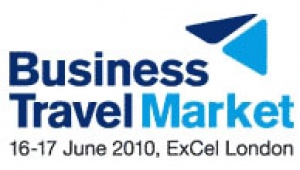Always ‘on’ business travellers show mobile tech is helpful in a crisis

Do you ever switch off your mobile – or are you always available? Recent research by Business Travel Market (BTM) and the Association of Travel Executives (ACTE) today revealed that just 6.2% of people ever switch off their company phone out of hours.
The survey questioned representatives from large multi-national companies on how the developments in mobile technology were being adopted by the business travel community. Just 30% of respondents said they made themselves available because they wanted to and 40% were available because their client or employee expected them to be.
Paul Robin, event director of Business Travel Market 2010, taking place this Wednesday and Thursday at ExCeL, London said: ‘Our survey revealed that employees seem a very dedicated bunch as employers and clients have come to expect them to be ‘on call’ at all times. It’s astonishing to think that only 6.2% switch their mobile off out of office hours aside from when they are in-flight!’
Of the companies surveyed, 96% provide blackberries and smart phones at their business, indicating a desire for additional functionality than just texting or calling.
Most notably however, the results showed how reliant people were on mobile applications and software in a crisis. Conducting the survey post-ash crisis it revealed that 85% said that mobile technology was helpful in an emergency, with over 48% using it to source alternative travel options, 66% keeping abreast of general news updates and most importantly, 73% who used the email and web applications to keep in contact with their family and company.
ADVERTISEMENT
A ‘look but no book’ trend….
In everyday use, checking the times of flights and trains whilst on the smart phone / blackberry was very popular, with over 70% of those surveyed using mobile applications to do this. Checking in from the mobile is also surprisingly high with over 40% of those surveyed using this technology before they get to the airport. However, there seems to be a trend of looking and not booking as only 11% of those surveyed have booked a train or flight through mobile app’s.
Barcodes and tickets on mobile phones also seem very popular with over 45% having used one – the majority of these (69%) for a ‘plane journey.
The survey also indicated that when arriving at a destination nearly two thirds (63%) use their mobile device to research their new location – however, it seems that the mapping function is still not overly popular, with over 60% of people not utilising this. This may be attributable to the fact that fewer people travelling on business explore a destination independently.
Keeping in touch with work and home…
The high usage of Skype whilst travelling on business (32.6%) could be to stay in touch with both colleagues, and also loved ones back home. Over 70% said they used conference call facilities on their mobile device such as Skype, Webex and other VOIP services.
In the business travel community, social networking sites seem ever popular with nearly 90% of respondees using Linked-In to stay in touch with business colleagues.
Paul Robin, Business Travel Market’s event director said: ‘The growth of mobile technology has empowered the end user to find out information from almost any location. Traveller’s can now be more informed and therefore more decisive at the touch of button or slide of a screen. Smart phones and blackberries, have proven to be indispensable to the business traveller and recent situations have really highlighted they can be in an emergency. It would be good to see more companies take note of their versatile uses.’
Caroline Allen, regional director of ACTE said: ‘It’s very encouraging to see from the survey that 68% of businesses have guidelines for mobile technology, whilst many of those that don’t are looking into one for the future. The survey results affirm our belief that there is a fundamental shift occurring in how corporates align their travel and mobile phone policies.’
Allen continued: ‘Mobile cost control is essential for modern business and, increasingly important, is the extent of mobile functionality and guidelines on how smart phones should be utilised for business. Whether it’s HR, IT or the travel department that have responsibility for mobile usage, companies need to align and update their policies, so they can enhance the end user’s capabilities – especially when the user is regularly out of office; travelling or in the field. Today we are at the tipping point in the way technology is used to deliver company travel policy compliance and therefore there is a greater need for collaboration between the end user and those responsible for procuring, setting and managing the travel and mobile policies.’

